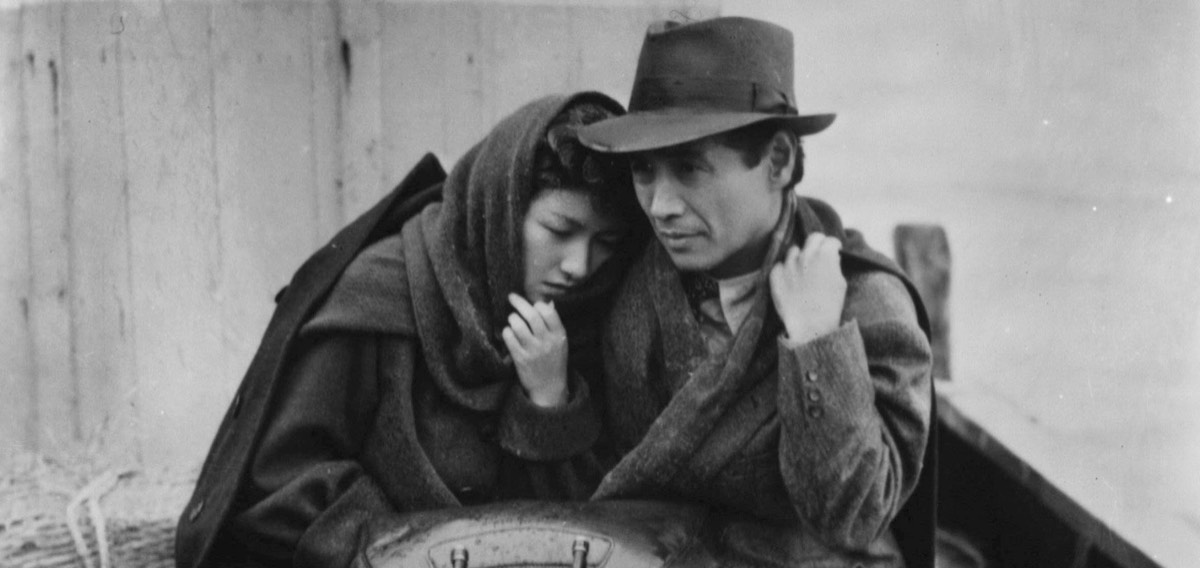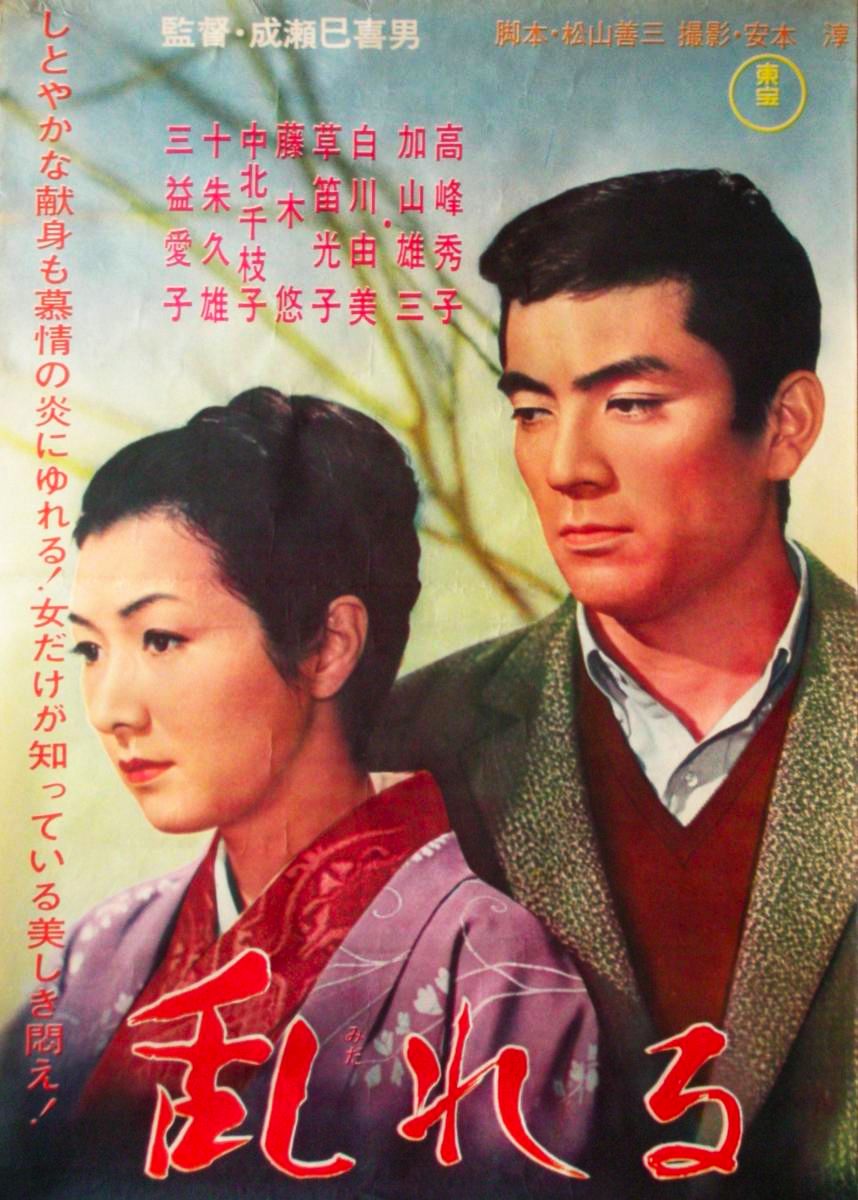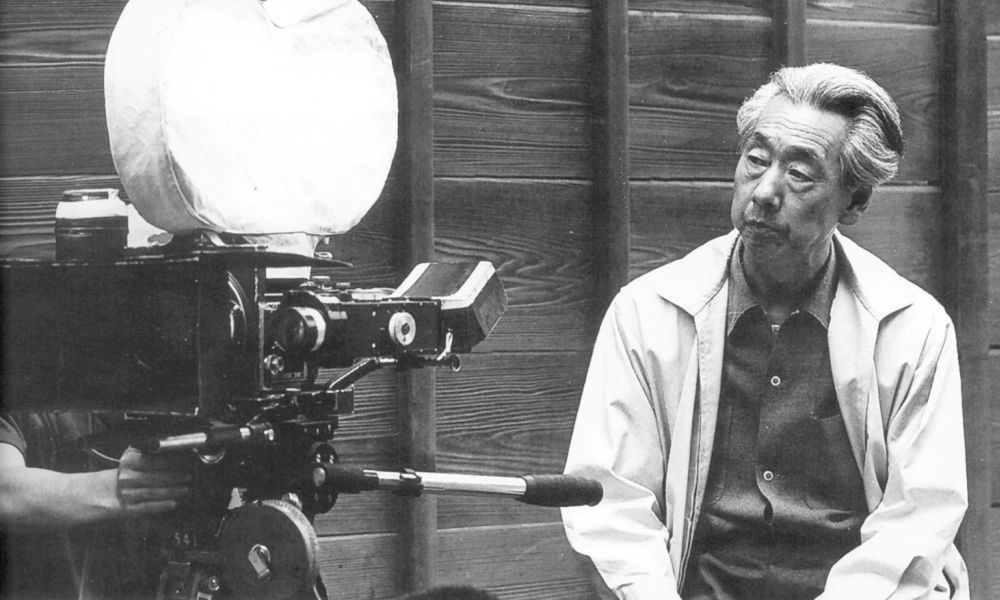“Despite being little-known in the West, Tokyo-born Mikio Naruse was one of the most prolific and accomplished Japanese directors of the twentieth century, chalking up nearly ninety films in four decades… Naruse’s most interesting films were produced during the 1950s, Japanese cinema’s golden era.” - Peter Buckley (The Rough Guide to Film, 2007)
Mikio Naruse
Director / Screenwriter / Producer
(1905-1969) Born August 20, Yotsuya, Tokyo, Japan
Top 250 Directors
(1905-1969) Born August 20, Yotsuya, Tokyo, Japan
Top 250 Directors
Key Production Country: Japan
Key Genres: Drama, Family Drama, Melodrama, Marriage Drama, Psychological Drama, Romantic Drama
Key Collaborators: Satoru Chûko (Production Designer), Ichirô Saitô (Composer), Daisuke Katô (Leading Character Actor), Sanezumi Fujimoto (Producer), Masao Tamai (Cinematographer), Chieko Nakakita (Character Actress), Eiji Ooi (Editor), Hideko Takamine (Leading Actress), Sumie Tanaka (Screenwriter), Hiroshi Suzuki (Cinematographer), Kamatari Fujiwara (Leading Character Actor), Toshirô Ide (Screenwriter)
Key Genres: Drama, Family Drama, Melodrama, Marriage Drama, Psychological Drama, Romantic Drama
Key Collaborators: Satoru Chûko (Production Designer), Ichirô Saitô (Composer), Daisuke Katô (Leading Character Actor), Sanezumi Fujimoto (Producer), Masao Tamai (Cinematographer), Chieko Nakakita (Character Actress), Eiji Ooi (Editor), Hideko Takamine (Leading Actress), Sumie Tanaka (Screenwriter), Hiroshi Suzuki (Cinematographer), Kamatari Fujiwara (Leading Character Actor), Toshirô Ide (Screenwriter)
"Distinguished Japanese director, though not the equal of Mizoguchi, Ozu, Gosho, Kinoshita, or Kurosawa. His films have a real sense of everyday life, behavior, and feelings and of the family in its social contest - qualities that made Okaasan/Mother his best film… His first films as director were largely comedies and routine melodramas until he established his reputation as a director of Shomin-geki films dealing with the lower-middles classes." - Georges Sadoul (Dictionary of Film Makers, 1972)
"His early films, many from his own screenplays, were typically a blend of slapstick and melodrama. In the 50s, he evolved, reaching his creative peak as a serious, uncompromisingly honest director of frequently pessimistic films that echoed memories of his unhappy youth. They typically dealt with everyday lives of common people and paid special attention to the status of women in Japanese society." - The Film Encyclopedia, 2012

Floating Clouds (1955)
"Mikio Naruse’s work bridged the cinematic gap between the silent film era, the advent of talkies, and the introduction of color films. His output was prolific, and he became one of the most prominent Japanese filmmakers of his time… His films were marked by a slow pace that allowed his characters to reveal their psychological depth, with subtle gestures revealing their acceptance of the problems of everyday life." - Erica Sheerin (501 Movie Directors, 2007)
"Naruse’s method consists of building one very brief shot on top of the other, but when you look at them all spliced together in the final film, they give the impression of a single long take. The flow is so magnificent that the splices are invisible. This flow of short shots looks calm and ordinary at first glance then reveals itself to be like a deep river with a quiet surface disguising a fast-raging current underneath. The sureness of his hand in this was without comparison." - Akira Kurosawa
"Naruse began his most creative period in the Fifties with a series of films, including Inazuma, Bangiku (1954) and Ukigumo, based on the feminist writings of Tumiko Hayashi (1904-1951), depicting downtrodden women. For Naruse, the claustrophobic roles women were made to play in Japanese society became a particular expression of his generally pessimistic view of the human condition." - The Illustrated Who's Who of the Cinema, 1983
"His films celebrate, without extravagance, the lives of ordinary people struggling for something better than the hand fate has dealt them. Performed with quiet certainty by superb actors, shot and edited with a sure and relentless hand, they raise the ordinary and even the sordid to a quality near sublime. They never succumb to the triteness of a Hollywood happy ending but show instead a noble and stubborn fortitude, proud individuals bumping into one dead end after another, twisting elegantly in the wind." - Audie Bock (Artforum, 2005)
"In speaking of his subject, the family, Naruse once said, ‘I am not interested in simple, trite home dramas.’ Rather, he was interested in richly detailed, meticulously honest home dramas, and it was through them that he both accurately reflected a major fact of Japanese life and defined his own pictorial style. In this, like Ozu, Naruse used such constriction to advantage." - Donald Richie (Cinema: A Critical Dictionary, 1980)
"Mikio Naruse was known during his lifetime as a great director of women. “To act in his films was really an honor for actresses,” said Yoko Tsukasa, who appeared in several Naruse films, most notably his last, Scattered Clouds, in 1967. “He understood perfectly the psychology of women.” If women and their problems predominate in Naruse’s films, as in Mizoguchi’s, the unique mixture of anguish and calm that characterizes the work of the less famous (but no less great) director arises from the fact that his female figures are always doubled. For every Naruse heroine there is another woman, her rival or mirror image, whom she finds waiting when she turns a new corner, who legitimately possesses the man to whom the heroine has at best a moral or sentimental claim, or who stands as a living reproach to the heroine." - Chris Fujiwara (Film Comment, 2005)
"Neither in his early experimental period nor in the mature postwar films did Naruse achieve a mastery of a specific visual style to merit comparison with the work of Mizoguchi or Ozu. Nevertheless, he commands respect as the architect of subtle and profound realist dramas, distinguished by careful observation and superb acting. His genre is the shomin-geki—the film about the lower middle classes—within which his specialities are the precise delineation of social milieux, of material hardship and practical responsibilities." - Alexander Jacoby (Senses of Cinema, 2003)
Selected Filmography
{{row.titlelong}}
Mikio Naruse / Fan Club
Dan Sallitt, Chris Fujiwara, Bertrand Tavernier, Hirokazu Koreeda, Edna Fainaru, Shu Kei, Ann Hui, Park Chan-wook, David Jenkins, Chung Sung-ill, Miguel Marías, Adrian Martin.
Dan Sallitt, Chris Fujiwara, Bertrand Tavernier, Hirokazu Koreeda, Edna Fainaru, Shu Kei, Ann Hui, Park Chan-wook, David Jenkins, Chung Sung-ill, Miguel Marías, Adrian Martin.
"Fan Club"
These film critics/filmmakers have, on multiple occasions, selected this director’s work within film ballots/lists that they have submitted.
These film critics/filmmakers have, on multiple occasions, selected this director’s work within film ballots/lists that they have submitted.


